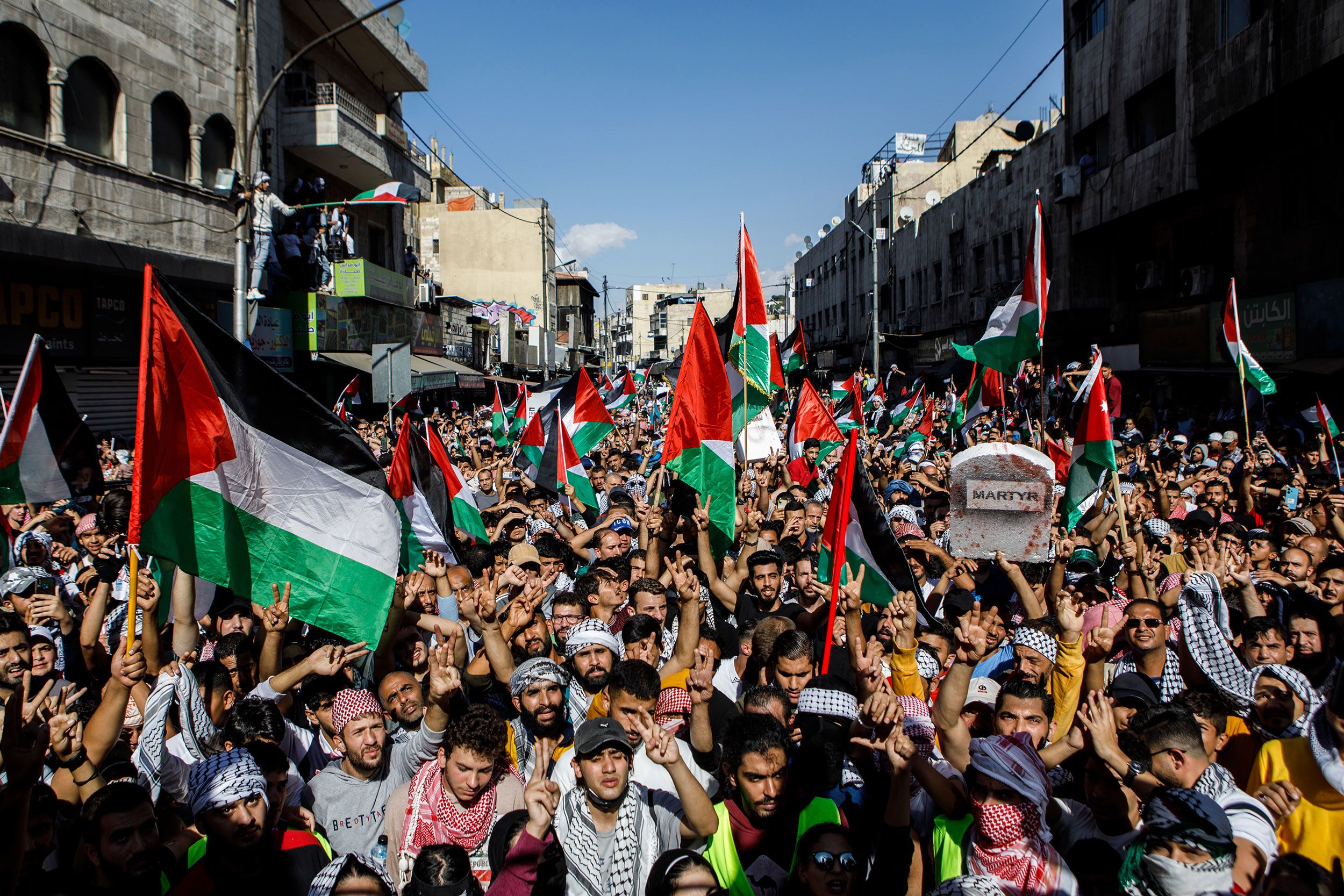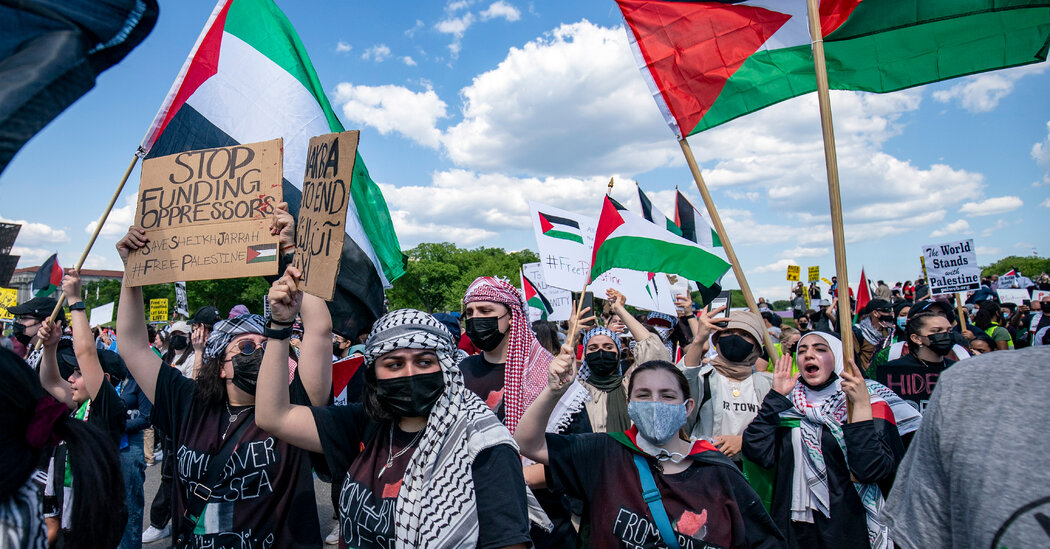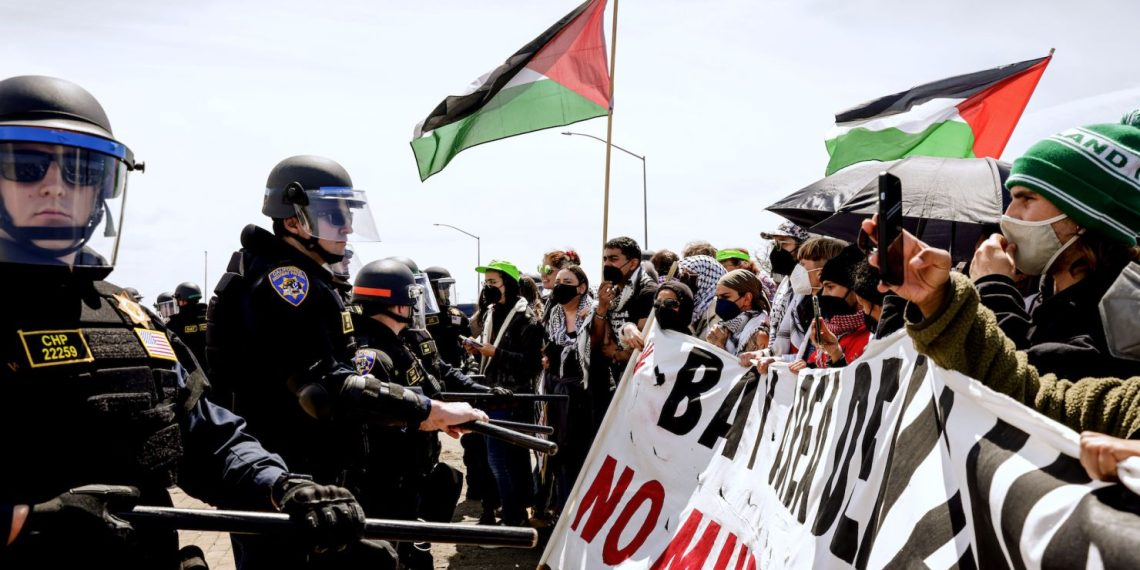As American universities resonate with protests against Israel’s actions in Gaza, Palestinians in the besieged enclave observe the disparity in reactions between U.S. campuses and Arab streets, questioning the absence of similar demonstrations in Arab nations traditionally seen as allies.
While Gazans appreciate and admire the solidarity shown by American students, they express disappointment that such protests haven’t materialized in Arab countries.
Ahmed Rezik, sheltering in Rafah, voices this sentiment, reflecting on the sadness that accompanies the absence of widespread protests in Arab and Muslim nations.

The subdued response from Arab nations can be attributed to various factors, ranging from apprehension about antagonizing autocratic governments to ideological differences with Hamas and its supporters, along with skepticism about the efficacy of protests in influencing state policies.
In the United States, where students may face repercussions but enjoy relative freedom of expression, protests have erupted on campuses, creating a visible display of solidarity with Gaza.
In Arab nations, where dissent is often met with severe consequences and tightly controlled by authorities, public protests against Israel’s actions are conspicuously absent.
Even though Arab sentiment strongly opposes Israel’s actions and expresses solidarity with Gaza, public demonstrations remain limited.
While some Arab countries have joined the conflict, such as Yemen’s Houthis launching strikes in the Red Sea, widespread street protests are notably absent.

The absence of public demonstrations in Arab nations has prompted some Gazans to express disappointment and issue calls for solidarity.
However, the geopolitical complexities, fear of reprisals, and historical context in each Arab country contribute to the muted response observed.
As Gazans look to Arab nations for support, they reflect on the contrasting landscape of protests between American campuses and Arab streets, highlighting the complexities of regional dynamics and the challenges in expressing dissent in authoritarian regimes.





